Invited Speakers
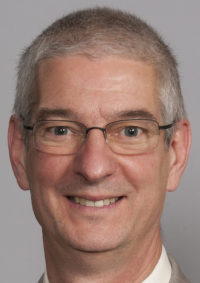 Dr. René St-Arnaud, Ph.D.
Dr. René St-Arnaud, Ph.D.
Dr. René St-Arnaud, Ph.D., is the inaugural Francis Glorieux Professor in Pediatric Musculoskeletal Research at McGill University. He is currently Director of Research at Shriners Hospital for Children – Canada and cross-appointed as a tenured Professor of Surgery at McGill. His research focuses on vitamin D metabolism and the control of gene expression in osteoblasts. His contributions to the understanding of bone cell differentiation and function have been recognized through several distinctions, most recently the C.P. Leblond Career Award. Dr. St-Arnaud has a total of 141 peer-reviewed publications, 40 book chapters or conference proceedings and holds seven medical invention patents.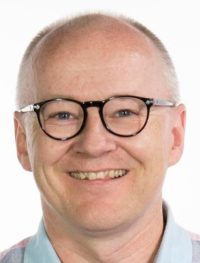 Dr. Kjetil Ask, Ph.D.
Dr. Kjetil Ask, Ph.D.
Dr. Kjetil Ask is an Associate Professor in the Department of Medicine at McMaster University. He is the founder and Director of McMaster’s Demystifying Medicine Program and the Molecular Phenotyping and Imaging Core facility at The Research Institute of St Joe’s Hamilton. Dr. Ask graduated from the University of Burgundy (France) in 2003 and completed his postdoctoral work at McMaster University (Canada, 2004-2008) under the direction of Drs. Gauldie and Kolb and at the NHLBI (US, 2008-2010) with Drs. Martha Vaughan and Joel Moss. He joined McMaster University in 2011 and his lab investigates the cellular and molecular mechanisms involved in progressive fibrotic disease with a special interest in modulating macrophage behavior to prevent progression and stimulate resolution in fibrotic lung disease.
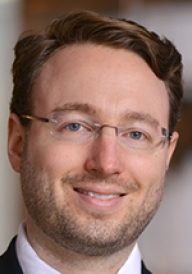 Dr. Philippe Campeau, M.D.
Dr. Philippe Campeau, M.D.
Dr. Philippe Campeau is a medical geneticist at the CHU Sainte-Justine and the Shriners, and a researcher at the University of Montreal. He did his genetics specialty training at McGill University and his postdoc at the Baylor College of Medicine in Houston. His clinical and research interests include skeletal dysplasias and neurodevelopmental disorders such as DOORS syndrome.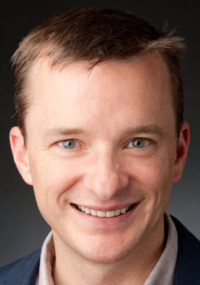 Dr. Colin Crist
Dr. Colin Crist
Dr. Colin Crist is an Associate Professor in the Department of Human Genetics at McGill University and Principal Investigator at the Lady Davis Institute for Medical Research. He obtained his PhD from the University of Tokyo and was a post-doctoral associate in the Department of Stem Cell and Developmental Biology at the Institut Pasteur (Paris, France) where he made contributions to our understanding of post-transcriptional regulation of gene expression within the context of mouse skeletal muscle development and regeneration. His laboratory investigates the molecular biology underlying muscle stem cell activity, with the rationale that deepening our understanding of how muscle stem cells develop, and function will be key to realizing regenerative medicine-based approaches to treating muscle disease.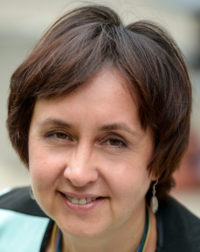 Dr. Luda Diatchenko, MD, Ph.D.
Dr. Luda Diatchenko, MD, Ph.D.
Dr. Luda Diatchenko is a Canada Excellence Research Chair in Human Pain Genetics, Professor, Faculty of Medicine, Department of Anesthesia, and Faculty of Dentistry, at McGill University. She earned her MD and PhD in the field of Molecular Biology from the Russian State Medical University. Dr. Diatchenko started her career in industry, she was a Leader of the RNA Expression Group at Clontech, and subsequently, Director of Gene Discovery at Attagene. During this time, Dr. Diatchenko was actively involved in the development of several widely-used and widely-cited molecular tools for the analysis of gene expression and regulation. Dr. Diatchenko’s academic career started at 2000 in the Center for Neurosensory Disorders at the University of North Carolina. Her research since then is focused on determining the cellular and molecular biological mechanisms by which genetic variations impact human pain perception and risk of development of chronic pain conditions, enabling new approaches to identify new drug targets and treatment responses to analgesics. Dr. Diatchenko have authored or co-authored over 120 peer-reviewed research papers in journals, 10 book chapters, and edited a book in human pain genetics. She is a member and an active officer of several national and international scientific societies.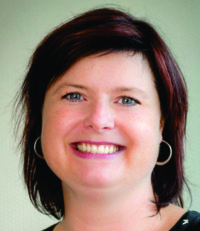 Dr. Julie Fradette, Ph.D.
Dr. Julie Fradette, Ph.D.
Dr. Julie Fradette is a Full Professor at Université Laval, Department of Surgery, Faculty of Medicine. She is a researcher at the Centre LOEX de l’Université Laval, at the research center of the CHU de Québec-Université Laval since 2005. She is a stem cell (epithelial and mesenchymal) and tissue-engineering expert focusing on human adipose-derived stem/stromal cells (ASCs) and their use in regenerative medicine. Her most significant contributions are related to the development of substitutes mimicking specific microenvironments, namely adipose tissue, skin and more recently bone. She is the director of ThéCell, the Québec network for cellular, tissular and gene therapy. Dr. Edward Harvey, MDCM, M.Sc.
Dr. Edward Harvey, MDCM, M.Sc.
Dr. Edward Harvey is a professor of surgery at McGill University, where he earned his medical degree in 1989. He has obtained an Honours BSc from Western University in biophysics (1985) and a Masters in Experimental Surgery from McGill in 2002. He had further training at Duke University and the University of Washington. His research interests in fundamental and clinical aspects of bone healing include implant and fracture optimization, biosensors and evaluation of novel hardware and surgical approaches to expedite repair. He collaborates with basic, clinical and engineering scientists and has ongoing industry collaborations, particularly in the field of micro-electromechanical systems (MEMS) and sensors. He is the Chief Investigator of the Injury Repair and Rehabilitation program at the MUHC-RI with over 100 investigators in his group. He has an extensive history of successful peer review funding including CIHR and NSERC amongst others. Dr. Harvey has had multiple responsibilities on executive and research committees of the Orthopaedic Trauma Association (OTA), the American Academy of Orthopaedic Surgeons (AAOS), the Orthopaedic Research Society (ORS) and the Canadian Orthopaedic Association (COA). He is, or has been, editor-in-chief of the Canadian Journal of Surgery; editorial board member of the Journal of Orthopaedic Trauma and OTA International; chairman of the Research Committee and of the Annual Basic Science Course of the OTA; member of the Board of Specialty Societies Research Committee- AAOS; chair of the Trauma Section- ORS; Member of Institutional Advisory Board- CIHR, and president of the COA.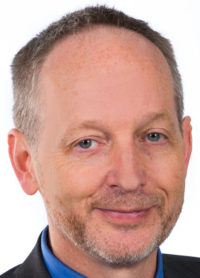 Dr. David Holdsworth, Ph.D.
Dr. David Holdsworth, Ph.D.
Dr. David Holdsworth is the Scientific Director of the Bone and Joint Institute and a Scientist in the Imaging group at the Robarts Research Institute. He is also a Professor in the Departments of Surgery and Medical Biophysics in the Schulich School of Medicine and Dentistry, at Western University. Dr. Holdsworth’s research program focuses on the development of three-dimensional x-ray imaging systems, for use in diagnosis and therapy. With a team of collaborators, he has developed new methods for musculoskeletal disease detection and treatment for both basic pre-clinical and clinical applications, with an emphasis on dynamic and quantitative imaging of the musculoskeletal system using radiography, CT, and MRI. Recently, he has expanded his program to include image-based additive manufacturing, which can be used to fabricate patient-specific orthopaedic components.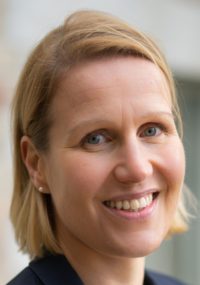 Dr. Saija Kontulainen Ph.D.
Dr. Saija Kontulainen Ph.D.
Dr. Saija Kontulainen is a Professor in the College of Kinesiology, University of Saskatchewan, Canada. She is also a Fellow of the American Society of Bone and Mineral Research. Dr. Kontulainen completed her PhD in exercise physiology and biomechanics at the University of Jyväskylä, Finland and postdoctoral fellowship in the Department of Orthopaedics at UBC, Canada. She has established a collaborative and interdisciplinary research program focused on bone fragility and fracture prevention across the lifespan. Her bone imaging lab has validated clinical imaging methods to reliably quantify bone (micro and macro) structure and strength estimates, and applied these methods to patient-oriented investigations, including pediatric bone studies and exercise interventions in individuals at risk of fragility fractures.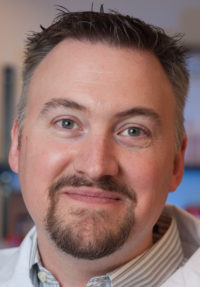 Dr. Roman Krawetz, Ph.D.
Dr. Roman Krawetz, Ph.D.
Since January 1, 2013, Dr. Roman Krawetz has been in the Department of Cell Biology & Anatomy and the dept. of Surgery at the University of Calgary. Dr. Krawetz is a full member of the McCaig Institute for Bone and Joint Health. His lab focuses on stem cell biology and aims to further understand their role in the onset and pathogenesis of Osteoarthritis (OA) and cartilage regeneration. In 2013 he also was awarded the Grace Glaum Professorship in Arthritis Research and in 2015 he was awarded a Tier II Canada Research Chair In Bone and Joint Stem Cell Biology.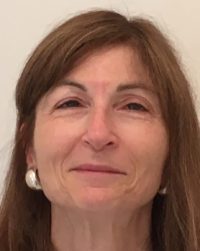 Dr. Sylvie Ricard-Blum, Ph.D.
Dr. Sylvie Ricard-Blum, Ph.D.
Dr. Sylvie Ricard-Blum is Professor of Biochemistry at the University of Lyon, where she coordinates the Master programme in Biochemistry and is deputy director of the Interdisciplinary Sciences – Health doctoral school. She works on the structure – interaction – function relationships of the extracellular matrix (ECM) using biochemistry, biophysics, bioinformatics and systems biology. Her team has identified hundreds of interactions between ECM proteins, glycosaminoglycans and ECM bioactive fragments called matricryptins, built numerous interaction networks of several ECM proteins and proteoglycans and created the ECM interaction database MatrixDB. Her current research interests focus on the role of intrinsic disorder, supramolecular assembly and disease-associated mutations in rewiring ECM interactomes. She has been Secretary and President of the French Society for Matrix Biology and she is currently President of the International Society for Matrix Biology. She also serves as editor of the HUPO Proteomics Standard Initiative and co-chair of the HUPO-PSI Molecular Interaction group.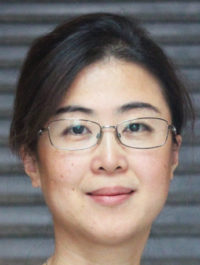 Dr. Lidan You, Ph.D.
Dr. Lidan You, Ph.D.
Dr. Lidan You is an Associate Professor at the University of Toronto. She obtained her PhD degree from City University of New York with Dr. Sheldon Weinbaum on bone fluid mechanics. She did her postdoctoral study at Stanford University with Dr. Christopher Jacobs on bone cell mechanotransduction. Her research focuses on solving biomechanical questions in muscular skeletal system at the cellular level. Specifically, her team works on the anti-resorptive effect of mechanical loading on bone tissue; mechanical loading effect on bone metastasis; vibration effect on bone cell function, and the advanced microfluidic system for bone cell mechanotransduction study.
